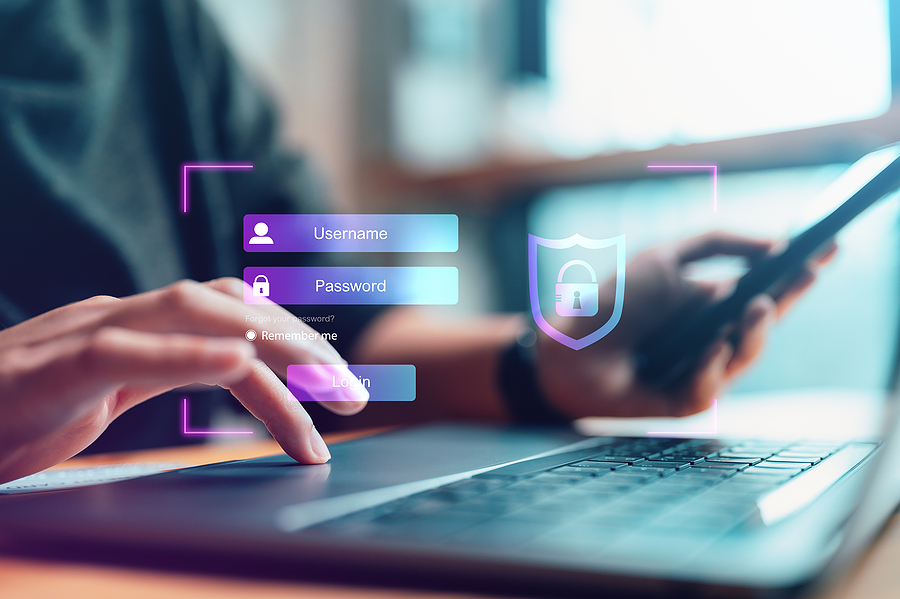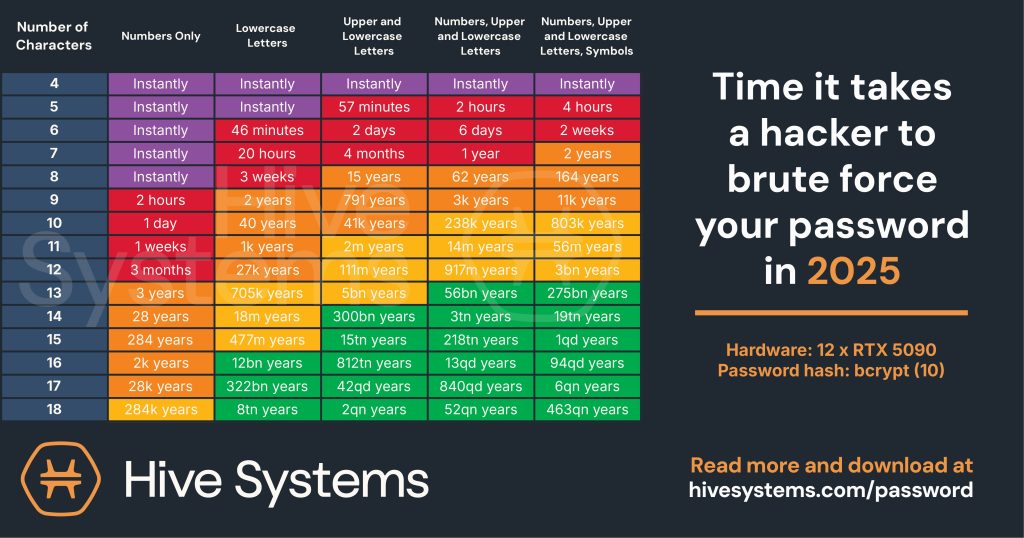
Can your password be hacked quickly?
Can your password be hacked quickly? It depends. Hackers use sophisticated knowledge and tools to try and crack passwords. You can make it harder for them by using multi-factor authentication, complex passphrases, or passwords created at random by a password manager.
Research from Hive Systems shows the relative strength of a password against a brute force cracking attempt, based on the password’s length and complexity:

Make Your Passwords Harder to Hack
- Always use multi-factor authentication. Using MFA can encourage a hacker to move on to an easier target.
- Consider using a password manager to create longer, randomly-generated passwords.
- If you create your own passwords, use passphrases that include a mix of upper- and lower-case letters, numbers and symbols. Be sure to avoid using personal information that could be easily discovered by hackers on social media profiles or other online sources.
- Try to use long passwords with a minimum of 8-15 characters.
- ALWAYS use a different password for every online account.
- If you discover a password has been found on the dark web, change the password and never use it again.
- Don’t share your passwords.
CRU Solutions can help protect your business from cybercriminals. Contact us!
Updated August 21, 2025